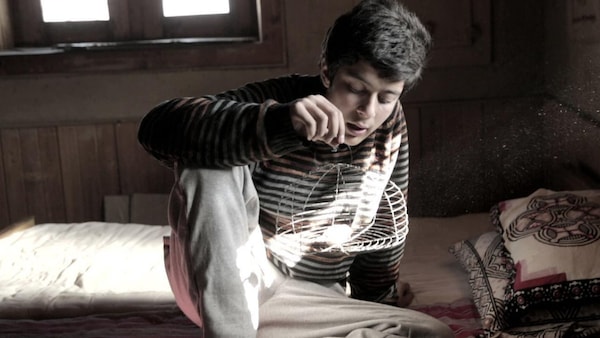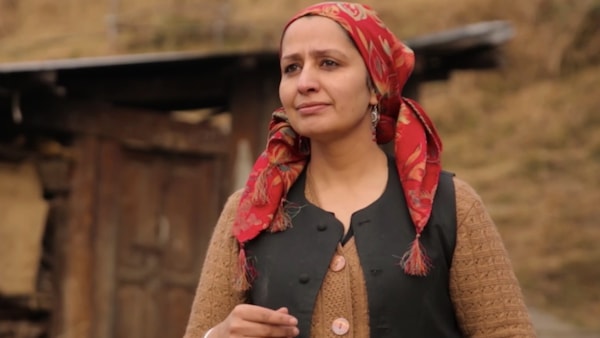Pashi review: A mysterious tale of dreams and desires, told gently
Streaming on MUBI India, gay love and a folksy bird-catching technique are at the heart of writer-director Siddharth Chauhan’s brilliant short film

Last Updated: 10.18 PM, Jun 12, 2022
STORY: Caught in the mesh of adolescence, infatuation and queer identity, village boy Ashish is trying his best to learn the nuances of trapping birds under a stone. Meanwhile, he is also unravelling the mysteries of his own family.
REVIEW: Independent filmmaker Siddharth Chauhan knows his homeland very well. He juxtaposes the postcard-perfect vistas of Himachal Pradesh to narrate delicate stories of the people who dwell in the mountain folds and are loyal to their surroundings. His style of storytelling is seemingly gentle and subdued, but it does not necessarily set the undertone for the intrepid and profound accounts that he narrates. Local flavours, smells and sounds are important characters in his films that provide the much-needed vantage point for the audience to get a whiff of the life that the state’s rural pahari community lives. His 32-minute film Pashi, which is currently streaming on MUBI India, is not an extraordinary story, but it’s definitely told in a refreshingly splendid manner, replete with reality, dreams and mystery.
The term pashi refers to an indigenous technique of trapping wild birds under a stone, the nuances of which teenager Ashish (Chetan Kanwar) is diligently learning from his grandmother (Savitri Devi Sunta). She takes one or two bidis from him in exchange for the gyan that she serves. Ashish lives with his grandmother and mother (Kamayani Bisht) in a sprawling village house, a part of which doubles as a lodge for visitors from the cities. The mother is unable to speak, but she has a keen eye for everything. With a bell tied to her wrist, she communicates with others using sign language.

Like most other adolescents, Ashish is trying to cope with teenage issues - be it at home or at school. But he is not confused about his sexual orientation nor is he ashamed of it in any way. He is infatuated with a certain guest (John Negi), who travels from the city and stays in the family-run inn from time to time. Under the pretence of delivering the milk can to him every morning, Ashish tries to seize the opportunity to spend time with the person he believes that he is in love with. He even misses school sometimes in a bid to find ways to woo this man.
Siddharth, who has written and directed the film, infuses dream sequences in the narrative to illustrate the lead character’s sexual desires. Although these scenes are used to complement the narrative, they sometimes seem a little abrupt, lacking the ability to merge well with the film’s delicate undertones. Also there are moments when Ashish’s honesty fills your heart, but his fearlessness takes you aback.
From simple beginnings, the narrative gradually turns more and more complex, which is in tandem with Ashish learning the different stages of pashi. It’s quite incredible to see how he subconsciously likens his learnings with the various tricks he uses to express his feelings toward the one he loves. What happens after the guest finds out about the boy’s secret desires is a different story altogether.
VERDICT: Ingenuity gleams through Pashi. Maybe, a little longer runtime could have helped iron out the creases. Nevertheless, the film is worth a watch for Ashish’s hasty yet sincere attempts to express his love and desire. It takes some courage to set a film themed on gay love in the remote Himalayan countryside. But again, it isn’t a coming-out-of-the-closet film. Rather, mystery trumps all in the end. If you have watched Siddharth’s The Flying Trunk (Udiaando Sindook), you’ll probably also find a common thread between the two short films - the mothers’ calm demeanour and grandmothers’ rather wisecrack attitude.
*Reema Gowalla is an arts and culture journalist, who mostly writes about theatre and independent cinema, and sometimes also delves into culinary heritage.
WHERE
TO WATCH
Subscribe to our newsletter for top content, delivered fast.
